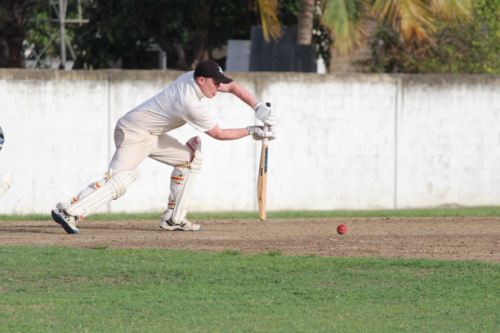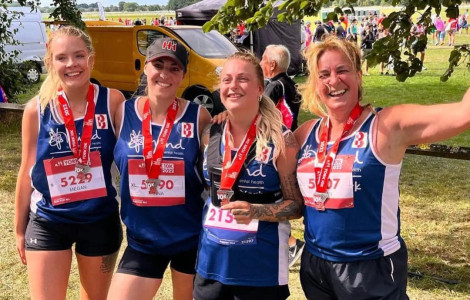13th July 2025, 9:00 - 5:00
Posted: 13th May 2024
More Than Just the Movement
Written by Chris Klays,
Systems Change Lead.
For someone who was always told to sit still, movement being the focus for mental health awareness week lends itself to a little bit of irony. As a young lad, I always had a tennis ball in my hand or a football at my feet but only since I have come into the world of mental health have, I understand that movement and sport to be much more than the activity itself.
I consider myself a cricketer, cyclist, climber and wannabe runner, and I have found that that these different activities have different benefits to my mental health.

Running and cycling for me is all about getting my angst out, putting in some loud music and just getting some frustrations out, but whilst being in nature.
Climbing, a new sporting endeavour, where I have found that the only thing I can concentrate when I am climbing is my next hold. “Active mindfulness” is how someone described it to me, and I can’t agree more. It’s your vs the wall and that’s it.
Now Cricket…. The activity I have the biggest love-hate relationship with. As a batter, your day can be over within 5 minutes and after you’ve waited all week to play, that can be very irritating. However, what I have found with cricket is that the camaraderie and community that is within the cricket club is the thing that is the most valuable thing to my mental health. The people, the relationships, the improvement of the team and the reliance and support from each other through a common goal and purpose. Yes, all of these things are heightened with a win on a Saturday, but at the end of the day, we all turn up the following week hoping that we have turned into Ben Stokes.
The mental benefits of movement and activity are so important, but it extends much more than just the physical exertion.
Maybe let us turn it on its head, I’ve talked about all the things around movement and activity that help me, but what about a lack of movement or maybe focusing our movement? With the busy lives many of us live I have found it ever more important to slow myself down, stop and focus on certain movements and activities that I can control. One of these is through breathing. You would think something that I have been doing for over 26 years that I would excel at it, but only in the last 6 months have I started to learn the importance of slowing the anxieties through being present on my breathing and concentration on my surroundings.
So yes, I have given several reasons why movement and activity are so important for maintaining and improving my mental health, but I guess what I have found is that certain coping strategies help me more depending on what it may be that I might be trying to deal with on a particular day. What works for us must be unique and if my ability to play cricket is hampered by the beautiful British weather than I must turn to one of my alternatives to give me that release and that dopamine hit.
“We should do 30 minutes of exercise each day” is a phrase I find frustrating because it seems to force is into the box where movement is only about the physical health benefits, but I think that is too simplistic. Whether you can get out for an extra 5-minute walk around the block or give yourself 5 minutes to stop and breathe when you get home from work or school, try incorporating it into your routine and see if starts to have a positive impact on your mood. I am not saying it definitely will, but if you are taking the steps (no-pun intended) to try better your mental health, then be proud of yourself for that.
If you want to find out how others have used movement and physical activity to benefit their mental health then click on the chat chit catalogue which you can find here chat chit catalogue.docx - Google Docs



Here is a little something for you…
I have worked with my colleague Beth Cameron, in collaboration with Simon Taylor from York Mind, Donna from Level 10, Stef Bricklebank, and Hannah Kay. to develop a completely free wellbeing planner PDF download, which you can find here.
The planner features proven ways to assist you in establishing a routine, practicing mindfulness, and setting goals. Pages include a gratitude journal, daily goals/mood tracker, scheduling support, a vision board template, habit tracking, and general tips for wellbeing, including exercise.



